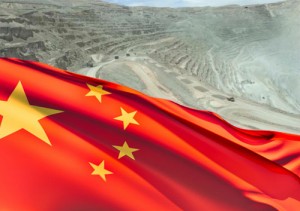
Watch the other hand. While the attention of the world is focused on oil, gold, and jobs, China is quietly cornering the market on rare earth elements. So…why should you care? The ability to compete in the 21st century marketplace and enjoy a thriving lifestyle depends upon these vital elements which are needed for advanced technologies, green energy, and military strength.
The Problematic Situation
As the producer of 93 percent of the world’s rare earth elements and heavy metals, China controls their flow and distribution just as OPEC determines the production and price of oil. China continues to tighten its squeeze on these valuable resources as demand begins to rise sharply. The Asian giant has lowered the amount of these elements that it allows to be exported in each of the last three years, and this year’s drip will be the smallest yet. The possibility of continued restrictions in the future is both very real and alarming.
At a time when other nations are looking for ways to bring jobs back home and restore their economic infrastructure, the Chinese grip on rare earth elements is making that more difficult. Outsourced jobs are being held for ransom, as restricted exports require manufacturers to produce their goods in China if they want to have access to the minerals. According to Zhang Peichen, the deputy director of the government-linked Baotou Rare Earth Institute, “Rare earth usage in China will be increasingly greater than exports.”
The Hurdles
There are other rare earth reserves in the world, but it appears that all roads to and from new mining operations will continue to go through China.
Two major new endeavors in Australia might be able to supply 25 percent of the world’s demand for these elements, but there is a problem. The current dire economic straights caused both Aussie companies to lose the considerable financing required to become operational. Yes, Chinese mining companies rode in on white horses to provide the cash, coming away with more than a 50 percent ownership stake in one Australian company and 25 percent in the other.
Another setback to mining development outside of China involves environmental issues. The preferred and affordable method of extracting rare earths is to pump acid into holes bored out to get to the buried treasure. The toxic slurry of dissolved ores is pumped out and stored in artificial ponds that leak contaminants into the environment and ground water. The pollution is so bad that even China is cutting back its production because of environmental concerns.
The Future
China’s stranglehold on these elements will give them a significant leg up in positioning for leadership of the 21st century economy. Lightweight magnets for wind turbines and extremely rare elements needed for hybrid powers systems, like those for the Prius and new Chevy Volt, will enrich the Chinese monopoly. Missile guidance systems and other military applications will also depend on the benevolence of the rich and powerful “state capitalists” in Beijing.
Oil and gold will have to move over and make room for new vocabulary words, like “dysprosium” and “terbium” if we are going to remain at the cutting edge of economic progress. It may already be too late.
If you liked this article you may be interested in this product from our sponsor.

 Off The Grid News Better Ideas For Off The Grid Living
Off The Grid News Better Ideas For Off The Grid Living



